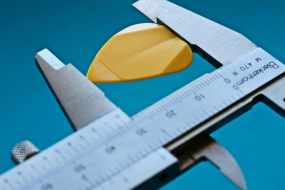
Ensuring a Strong, Future-Proof European Standardisation System
Bitkom's Answer to the Call for Evidence for the Revision of Regulation (EU) 1025/2012
The European Standardisation System (ESS) continues to be a well-functioning framework that ensures Europe’s global competitiveness by delivering high-quality standards. The New Legislative Framework (NLF) has been pivotal to the success of the Single Market. In the Public-Private Partnership of the ESS, European legislators can establish essential requirements, while technical implementation standards are developed by experts from across Europe. The PPP ensures that profound knowledge of industry, innovation, and market needs contribute to shaping harmonised European Standards (hENs). This promotes widespread acceptance and implementation of these standards among European stakeholders.
A revision of the Standardisation Regulation should focus on re-establishing core benefits of the system that have been limited through the changes made to the ESS over the last years.
Firstly, the alignment of harmonised standards with international standards of ISO and IEC facilitates global market access and lowers costs by eliminating the need for different product specifications across various markets. The alignment also ensures optimal resource utilization and expertise, while preventing redundant efforts in standard development for European standardisation experts.
Secondly, the fast listing of harmonised standards enables easier market access within the EU and reduces compliance burdens. Early access to harmonised standards offers legal certainty through the presumption of conformity and eliminates the need to involve third parties in conformity assessments, resulting in crucial cost savings, especially for SMEs.
We therefore advocate for only necessary and targeted amendments to Regulation 1025/2012 as detailed in this paper that address implementation challenges in fulfilling the above goals without destabilising the proven foundation of the ESS.








